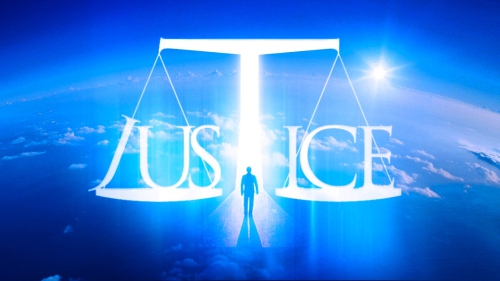Sharia, or sharia law, is the Islamic legal system derived from the religious precepts of Islam, particularly the Quran and the Hadith. The term sharia comes from the Arabic language term sharīʿah, Arabic: شريعة which means a body of moral and religious law derived from religious prophecy, as opposed to human legislation.
Sharia deals with many topics, including crime, politics, and economics, as well as personal matters such as sexual intercourse, hygiene, diet, prayer, everyday etiquette and fasting. Adherence to sharia has served as one of the distinguishing characteristics of the Muslim faith historically. In its strictest and most historically coherent definition, sharia is considered in Islam as the infallible law of God.
There are two primary sources of sharia: the Quran, and the Hadiths (opinions and life example of Muhammad). For topics and issues not directly addressed in these primary sources, sharia is derived. The derivation differs between the various sects of Islam (Sunni and Shia), and various jurisprudence schools such as Hanafi, Maliki, Shafi'i, Hanbali and Jafari. The sharia in these schools is derived hierarchically using one or more of the following guidelines: Ijma (usually the consensus of Muhammad's companions), Qiyas (analogy derived from the primary sources), Istihsan (ruling that serves the interest of Islam in the discretion of Islamic jurists) and Urf (customs).
Sharia deals with many topics, including crime, politics, and economics, as well as personal matters such as sexual intercourse, hygiene, diet, prayer, everyday etiquette and fasting. Adherence to sharia has served as one of the distinguishing characteristics of the Muslim faith historically. In its strictest and most historically coherent definition, sharia is considered in Islam as the infallible law of God.
There are two primary sources of sharia: the Quran, and the Hadiths (opinions and life example of Muhammad). For topics and issues not directly addressed in these primary sources, sharia is derived. The derivation differs between the various sects of Islam (Sunni and Shia), and various jurisprudence schools such as Hanafi, Maliki, Shafi'i, Hanbali and Jafari. The sharia in these schools is derived hierarchically using one or more of the following guidelines: Ijma (usually the consensus of Muhammad's companions), Qiyas (analogy derived from the primary sources), Istihsan (ruling that serves the interest of Islam in the discretion of Islamic jurists) and Urf (customs).
See Also: Allah | American Muslims | Compassion | Education | Government And Politics | Humanity | Interfaith | Islam | Justice | Knowledge | Love | Madinah (Medina) | Makkah (Mecca) | Nature And Environment | Prophet Jesus (Isa) | Prophet Muhammad (S) | Quran | Ramadan | Spirituality | Tolerance
MOST RECENT
a:18:{s:8:"theTitle";s:78:"How Has Islamic Finance Evolved as a System of Justice and Ethical Prosperity?";s:12:"thePermalink";s:112:"https://www.islamicity.org/102749/how-has-islamic-finance-evolved-as-a-system-of-justice-and-ethical-prosperity/";s:13:"theAuthorName";s:15:"Mohamed Chtatou";s:12:"theThumbnail";s:82:"https://media.islamicity.org/wp-content/uploads/2024/09/Islamic-Finance-scaled.jpg";s:6:"isWhat";s:7:"article";s:7:"theIcon";s:0:"";s:8:"theEmbed";s:0:"";s:11:"theCategory";s:44:"cannot-retrieve-category-see-cell-part-1.php";s:6:"theTag";s:39:"Islamic Finance|/topics/islamic-finance";s:7:"theDate";s:11:"Sep 21 2024";s:11:"theDate_ORG";s:43:"September 20, 2024 {wpcf-soft-date engaged}";s:9:"theAuthor";s:35:"Mohamed Chtatou|/by/mohamed-chtatou";s:5:"theID";i:102749;s:14:"theReadingTime";s:7:"66 min.";s:10:"theExcerpt";s:186:"Islamic finance during the time of the Prophet Muhammad ﷺ was characterized by real transactions such as sale on credit and renting, rather than through modern banking systems, w......";s:12:"theTitle_ORG";s:78:"How Has Islamic Finance Evolved as a System of Justice and Ethical Prosperity?";s:25:"processRelatedFacetsTitle";s:0:"";s:15:"whereItCameFrom";s:91:"_blp_taxonomy_archives.php & zone12 & tax-query & mostrecent on post_tag=islamic-law-sharia";}
- Sort By
- Views
- Comments
- Duration
Sections- All
- Articles
- Videos
Covered Topics- All
- Abortion
- American Muslims
- Blasphemy
- Blockchain
- Caliphate
- Dawah (Outreach)
- Demography
- Destiny (Qadr)
- Divine Law
- Economic System Of Islam
- Economy
- Education
- Family
- Finance
- Fitra (Original Disposition)
- Free Will
- Freedom Of Religion
- Freedom Of Speech
- Freedom
- Government And Politics
- Guidance
- Halal Mortgage
- Halal
- Heart
- Hellfire
- Higher Education
- History
- Hudaibiya Treaty
- Humanity
- Ijtihad
- Intellect
- Interest (Riba)
- Islam In Europe
- Islam
- Islamic Banking
- Islamic Democracy
- Islamic Finance
- Islamic Jurisprudence (Fiqh)
- Islamic Law (Sharia)
- Jinn
- Justice
- Justice
- Khutbah (Sermon)
- Knowledge
- Life And Death
- Life Hereafter (Akhirah)
- Makkah (Mecca)
- Metaphysics
- Music
- Muslim World
- Muslims In The West
- Peace
- Prophet Muhammad (S)
- Quran
- Reasoning
- Religion
- Revelation
- Secularism
- Seerah
- Social System Of Islam
- Tawhid (Oneness Of God)
- Tolerance
- Truthfulness
- Ummah (Community)
- United Nations
- Wealth
- Western World
- Wisdom
a:18:{s:8:"theTitle";s:25:"What are Halal Mortgages?";s:12:"thePermalink";s:59:"https://www.islamicity.org/102728/what-are-halal-mortgages/";s:13:"theAuthorName";s:15:"Shariq Siddiqui";s:12:"theThumbnail";s:82:"https://media.islamicity.org/wp-content/uploads/2024/09/halal-mortgages-scaled.jpg";s:6:"isWhat";s:7:"article";s:7:"theIcon";s:0:"";s:8:"theEmbed";s:0:"";s:11:"theCategory";s:44:"cannot-retrieve-category-see-cell-part-1.php";s:6:"theTag";s:39:"Islamic Finance|/topics/islamic-finance";s:7:"theDate";s:11:"Sep 18 2024";s:11:"theDate_ORG";s:43:"September 17, 2024 {wpcf-soft-date engaged}";s:9:"theAuthor";s:35:"Shariq Siddiqui|/by/shariq-siddiqui";s:5:"theID";i:102728;s:14:"theReadingTime";s:6:"6 min.";s:10:"theExcerpt";s:125:"The growth of “halal mortgages” over the past 20 years has expanded financial access to homeownership for many Muslims.";s:12:"theTitle_ORG";s:25:"What are Halal Mortgages?";s:25:"processRelatedFacetsTitle";s:0:"";s:15:"whereItCameFrom";s:91:"_blp_taxonomy_archives.php & zone12 & tax-query & mostrecent on post_tag=islamic-law-sharia";}
a:18:{s:8:"theTitle";s:28:"The Islamic Case for Bitcoin";s:12:"thePermalink";s:63:"https://www.islamicity.org/102545/the-islamic-case-for-bitcoin/";s:13:"theAuthorName";s:12:"Harris Irfan";s:12:"theThumbnail";s:56:"https://img.youtube.com/vi/-4CMBsSnPZw/maxresdefault.jpg";s:6:"isWhat";s:5:"video";s:7:"theIcon";s:33:"";s:8:"theEmbed";s:43:"https://www.youtube.com/watch?v=-4CMBsSnPZw";s:11:"theCategory";s:44:"cannot-retrieve-category-see-cell-part-1.php";s:6:"theTag";s:57:"economic system of islam|/topics/economic-system-of-islam";s:7:"theDate";s:11:"Aug 28 2024";s:11:"theDate_ORG";s:40:"August 28, 2024 {wpcf-soft-date engaged}";s:9:"theAuthor";s:29:"Harris Irfan|/by/harris-irfan";s:5:"theID";i:102545;s:14:"theReadingTime";s:7:"12 min.";s:10:"theExcerpt";s:147:"Welcome to Islamic Case for Bitcoin by Harris Irfan, a compelling exploration of Bitcoin through the lens of Islamic finance and Sharia compliance.";s:12:"theTitle_ORG";s:28:"The Islamic Case for Bitcoin";s:25:"processRelatedFacetsTitle";s:0:"";s:15:"whereItCameFrom";s:91:"_blp_taxonomy_archives.php & zone12 & tax-query & mostrecent on post_tag=islamic-law-sharia";}
a:18:{s:8:"theTitle";s:41:"Managing Your Money and the Halal Economy";s:12:"thePermalink";s:76:"https://www.islamicity.org/102535/managing-your-money-and-the-halal-economy/";s:13:"theAuthorName";s:12:"Harris Irfan";s:12:"theThumbnail";s:56:"https://img.youtube.com/vi/lM08yBBejFU/maxresdefault.jpg";s:6:"isWhat";s:5:"video";s:7:"theIcon";s:33:"";s:8:"theEmbed";s:43:"https://www.youtube.com/watch?v=lM08yBBejFU";s:11:"theCategory";s:44:"cannot-retrieve-category-see-cell-part-1.php";s:6:"theTag";s:47:"islamic law (sharia)|/topics/islamic-law-sharia";s:7:"theDate";s:11:"Aug 27 2024";s:11:"theDate_ORG";s:40:"August 26, 2024 {wpcf-soft-date engaged}";s:9:"theAuthor";s:29:"Harris Irfan|/by/harris-irfan";s:5:"theID";i:102535;s:14:"theReadingTime";s:7:"12 min.";s:10:"theExcerpt";s:163:"The video "Managing Your Money and the Halal Economy with Harris Irfan" addresses challenges Muslims face with traditional banking and explores halal alternatives.";s:12:"theTitle_ORG";s:41:"Managing Your Money and the Halal Economy";s:25:"processRelatedFacetsTitle";s:0:"";s:15:"whereItCameFrom";s:91:"_blp_taxonomy_archives.php & zone12 & tax-query & mostrecent on post_tag=islamic-law-sharia";}
a:18:{s:8:"theTitle";s:72:"The Secular West Declining and Resurgence of Islam and Muslims Worldwide";s:12:"thePermalink";s:107:"https://www.islamicity.org/101440/the-secular-west-declining-and-resurgence-of-islam-and-muslims-worldwide/";s:13:"theAuthorName";s:17:"Siraj Islam Mufti";s:12:"theThumbnail";s:132:"https://media.islamicity.org/wp-content/uploads/2024/04/The-Secular-West-declining-and-resurgence-of-Islam-and-Muslims-worldwide.png";s:6:"isWhat";s:7:"article";s:7:"theIcon";s:0:"";s:8:"theEmbed";s:0:"";s:11:"theCategory";s:44:"cannot-retrieve-category-see-cell-part-1.php";s:6:"theTag";s:47:"islamic law (sharia)|/topics/islamic-law-sharia";s:7:"theDate";s:11:"Apr 24 2024";s:11:"theDate_ORG";s:39:"April 23, 2024 {wpcf-soft-date engaged}";s:9:"theAuthor";s:39:"Siraj Islam Mufti|/by/siraj-islam-mufti";s:5:"theID";i:101440;s:14:"theReadingTime";s:7:"45 min.";s:10:"theExcerpt";s:186:"World population trends
According to the United Nations Population Fund, it took hundreds of thousands of years for the world population to grow to one billion – then in just ......";s:12:"theTitle_ORG";s:72:"The Secular West Declining and Resurgence of Islam and Muslims Worldwide";s:25:"processRelatedFacetsTitle";s:0:"";s:15:"whereItCameFrom";s:91:"_blp_taxonomy_archives.php & zone12 & tax-query & mostrecent on post_tag=islamic-law-sharia";}
a:18:{s:8:"theTitle";s:27:"Debate: Islam and the State";s:12:"thePermalink";s:61:"https://www.islamicity.org/100938/debate-islam-and-the-state/";s:13:"theAuthorName";s:16:"Mustafa Akyol+..";s:12:"theThumbnail";s:56:"https://img.youtube.com/vi/m7oPD2jAqdM/maxresdefault.jpg";s:6:"isWhat";s:5:"video";s:7:"theIcon";s:33:"";s:8:"theEmbed";s:43:"https://www.youtube.com/watch?v=m7oPD2jAqdM";s:11:"theCategory";s:44:"cannot-retrieve-category-see-cell-part-1.php";s:6:"theTag";s:25:"religion|/topics/religion";s:7:"theDate";s:11:"Mar 28 2024";s:11:"theDate_ORG";s:39:"March 28, 2024 {wpcf-soft-date engaged}";s:9:"theAuthor";s:34:"Mustafa Akyol+..|/by/mustafa-akyol";s:5:"theID";i:100938;s:14:"theReadingTime";s:0:"";s:10:"theExcerpt";s:186:"Shaykh Yasir Qadhi, Dean of the Islamic Seminary of America, and Mustafa Akyol, Senior Fellow at the Cato Institute and Affiliate Scholar of the Collins Center, discuss “Should g......";s:12:"theTitle_ORG";s:27:"Debate: Islam and the State";s:25:"processRelatedFacetsTitle";s:0:"";s:15:"whereItCameFrom";s:91:"_blp_taxonomy_archives.php & zone12 & tax-query & mostrecent on post_tag=islamic-law-sharia";}
a:18:{s:8:"theTitle";s:49:"Islamic Banking an Oxymoron and Future of Bitcoin";s:12:"thePermalink";s:84:"https://www.islamicity.org/100916/islamic-banking-an-oxymoron-and-future-of-bitcoin/";s:13:"theAuthorName";s:12:"Harris Irfan";s:12:"theThumbnail";s:56:"https://img.youtube.com/vi/yfXygW6dYMM/maxresdefault.jpg";s:6:"isWhat";s:5:"video";s:7:"theIcon";s:33:"";s:8:"theEmbed";s:43:"https://www.youtube.com/watch?v=yfXygW6dYMM";s:11:"theCategory";s:44:"cannot-retrieve-category-see-cell-part-1.php";s:6:"theTag";s:37:"interest (riba)|/topics/interest-riba";s:7:"theDate";s:11:"Mar 27 2024";s:11:"theDate_ORG";s:39:"March 25, 2024 {wpcf-soft-date engaged}";s:9:"theAuthor";s:29:"Harris Irfan|/by/harris-irfan";s:5:"theID";i:100916;s:14:"theReadingTime";s:7:"16 min.";s:10:"theExcerpt";s:186:"In this Islamic Finance Guru episode, the veteran of Islamic Banking Harris Irfan takes a deep dive on everything wrong with the financial system today, its alternatives and what t......";s:12:"theTitle_ORG";s:49:"Islamic Banking an Oxymoron and Future of Bitcoin";s:25:"processRelatedFacetsTitle";s:0:"";s:15:"whereItCameFrom";s:91:"_blp_taxonomy_archives.php & zone12 & tax-query & mostrecent on post_tag=islamic-law-sharia";}
a:18:{s:8:"theTitle";s:34:"Is Islamic Banking Really Islamic?";s:12:"thePermalink";s:68:"https://www.islamicity.org/100912/is-islamic-banking-really-islamic/";s:13:"theAuthorName";s:12:"Harris Irfan";s:12:"theThumbnail";s:56:"https://img.youtube.com/vi/f13mgKVjJsU/maxresdefault.jpg";s:6:"isWhat";s:5:"video";s:7:"theIcon";s:33:"";s:8:"theEmbed";s:43:"https://www.youtube.com/watch?v=f13mgKVjJsU";s:11:"theCategory";s:44:"cannot-retrieve-category-see-cell-part-1.php";s:6:"theTag";s:57:"economic system of islam|/topics/economic-system-of-islam";s:7:"theDate";s:11:"Mar 26 2024";s:11:"theDate_ORG";s:39:"March 25, 2024 {wpcf-soft-date engaged}";s:9:"theAuthor";s:29:"Harris Irfan|/by/harris-irfan";s:5:"theID";i:100912;s:14:"theReadingTime";s:7:"16 min.";s:10:"theExcerpt";s:122:"Muslims worldwide have come to the realisation that the prevailing capitalist economic system does not serve us ethically.";s:12:"theTitle_ORG";s:34:"Is Islamic Banking Really Islamic?";s:25:"processRelatedFacetsTitle";s:0:"";s:15:"whereItCameFrom";s:91:"_blp_taxonomy_archives.php & zone12 & tax-query & mostrecent on post_tag=islamic-law-sharia";}
a:18:{s:8:"theTitle";s:28:"Fatwas for Muslim Minorities";s:12:"thePermalink";s:62:"https://www.islamicity.org/91207/fatwas-for-muslim-minorities/";s:13:"theAuthorName";s:21:"Mohamed Mahmoud Habib";s:12:"theThumbnail";s:65:"https://media.islamicity.org/wp-content/uploads/2023/10/fatwa.jpg";s:6:"isWhat";s:7:"article";s:7:"theIcon";s:0:"";s:8:"theEmbed";s:0:"";s:11:"theCategory";s:44:"cannot-retrieve-category-see-cell-part-1.php";s:6:"theTag";s:47:"islamic law (sharia)|/topics/islamic-law-sharia";s:7:"theDate";s:11:"Oct 25 2023";s:11:"theDate_ORG";s:41:"October 25, 2023 {wpcf-soft-date engaged}";s:9:"theAuthor";s:47:"Mohamed Mahmoud Habib|/by/mohamed-mahmoud-habib";s:5:"theID";i:91207;s:14:"theReadingTime";s:6:"6 min.";s:10:"theExcerpt";s:121:"Religion is a fundamental factor in the identity of the Muslim individual and the formation of their thought and culture.";s:12:"theTitle_ORG";s:28:"Fatwas for Muslim Minorities";s:25:"processRelatedFacetsTitle";s:0:"";s:15:"whereItCameFrom";s:91:"_blp_taxonomy_archives.php & zone12 & tax-query & mostrecent on post_tag=islamic-law-sharia";}
a:18:{s:8:"theTitle";s:55:"Establishment of System of Justice Based on Divine Laws";s:12:"thePermalink";s:89:"https://www.islamicity.org/81958/establishment-of-system-of-justice-based-on-divine-laws/";s:13:"theAuthorName";s:12:"Mansoor Alam";s:12:"theThumbnail";s:67:"https://media.islamicity.org/wp-content/uploads/2015/06/Justice.jpg";s:6:"isWhat";s:7:"article";s:7:"theIcon";s:0:"";s:8:"theEmbed";s:0:"";s:11:"theCategory";s:44:"cannot-retrieve-category-see-cell-part-1.php";s:6:"theTag";s:47:"islamic law (sharia)|/topics/islamic-law-sharia";s:7:"theDate";s:11:"May 14 2023";s:11:"theDate_ORG";s:42:"December 29, 2022 {wpcf-soft-date engaged}";s:9:"theAuthor";s:29:"Mansoor Alam|/by/mansoor-alam";s:5:"theID";i:81958;s:14:"theReadingTime";s:7:"21 min.";s:10:"theExcerpt";s:80:"The Quran says that natural disasters and calamities do occur from time to time.";s:12:"theTitle_ORG";s:55:"Establishment of System of Justice Based on Divine Laws";s:25:"processRelatedFacetsTitle";s:0:"";s:15:"whereItCameFrom";s:91:"_blp_taxonomy_archives.php & zone12 & tax-query & mostrecent on post_tag=islamic-law-sharia";}
a:18:{s:8:"theTitle";s:23:"Islam is not a religion";s:12:"thePermalink";s:57:"https://www.islamicity.org/82309/islam-is-not-a-religion/";s:13:"theAuthorName";s:10:"Majd Arbil";s:12:"theThumbnail";s:79:"https://media.islamicity.org/wp-content/uploads/2023/03/pure-water-life-isp.jpg";s:6:"isWhat";s:7:"unknown";s:7:"theIcon";s:0:"";s:8:"theEmbed";s:0:"";s:11:"theCategory";s:44:"cannot-retrieve-category-see-cell-part-1.php";s:6:"theTag";s:53:"tawhid (oneness of god)|/topics/tawhid-oneness-of-god";s:7:"theDate";s:11:"Apr 27 2023";s:11:"theDate_ORG";s:39:"March 26, 2023 {wpcf-soft-date engaged}";s:9:"theAuthor";s:25:"Majd Arbil|/by/majd-arbil";s:5:"theID";i:82309;s:14:"theReadingTime";s:0:"";s:10:"theExcerpt";s:60:"Deen is derived from the root 'dain' meaning to take a loan.";s:12:"theTitle_ORG";s:23:"Islam is not a religion";s:25:"processRelatedFacetsTitle";s:0:"";s:15:"whereItCameFrom";s:91:"_blp_taxonomy_archives.php & zone12 & tax-query & mostrecent on post_tag=islamic-law-sharia";}
a:18:{s:8:"theTitle";s:48:"The Remarkable Vision of Prophet Muhammad (PBUH)";s:12:"thePermalink";s:80:"https://www.islamicity.org/65468/the-remarkable-vision-of-prophet-muhammad-pbuh/";s:13:"theAuthorName";s:12:"Mansoor Alam";s:12:"theThumbnail";s:76:"https://media.islamicity.org/wp-content/uploads/2021/01/iStock-500504909.jpg";s:6:"isWhat";s:7:"article";s:7:"theIcon";s:0:"";s:8:"theEmbed";s:0:"";s:11:"theCategory";s:44:"cannot-retrieve-category-see-cell-part-1.php";s:6:"theTag";s:19:"heart|/topics/heart";s:7:"theDate";s:11:"Oct 16 2022";s:11:"theDate_ORG";s:41:"October 28, 2020 {wpcf-soft-date engaged}";s:9:"theAuthor";s:29:"Mansoor Alam|/by/mansoor-alam";s:5:"theID";i:65468;s:14:"theReadingTime";s:7:"14 min.";s:10:"theExcerpt";s:138:"Our Prophet (PBUH) came as Divine Messenger to Arab people during a period that is famously known as the period of Jahiliyyah (ignorance).";s:12:"theTitle_ORG";s:48:"The Remarkable Vision of Prophet Muhammad (PBUH)";s:25:"processRelatedFacetsTitle";s:0:"";s:15:"whereItCameFrom";s:91:"_blp_taxonomy_archives.php & zone12 & tax-query & mostrecent on post_tag=islamic-law-sharia";}
a:18:{s:8:"theTitle";s:26:"Singing and Music in Islam";s:12:"thePermalink";s:59:"https://www.islamicity.org/3018/singing-and-music-in-islam/";s:13:"theAuthorName";s:17:"Yusuf Al-Qaradawi";s:12:"theThumbnail";s:69:"https://media.islamicity.org/wp-content/uploads/2022/09/Music-isp.jpg";s:6:"isWhat";s:7:"article";s:7:"theIcon";s:0:"";s:8:"theEmbed";s:0:"";s:11:"theCategory";s:44:"cannot-retrieve-category-see-cell-part-1.php";s:6:"theTag";s:47:"islamic law (sharia)|/topics/islamic-law-sharia";s:7:"theDate";s:11:"Sep 26 2022";s:11:"theDate_ORG";s:42:"December 12, 2006 {wpcf-soft-date engaged}";s:9:"theAuthor";s:39:"Yusuf Al-Qaradawi|/by/yusuf-al-qaradawi";s:5:"theID";i:3018;s:14:"theReadingTime";s:7:"13 min.";s:10:"theExcerpt";s:160:"Islam permits singing under the condition that it not be in any way obscene or harmful to Islamic morals. There is no harm in its being accompanied by music ..";s:12:"theTitle_ORG";s:26:"Singing and Music in Islam";s:25:"processRelatedFacetsTitle";s:0:"";s:15:"whereItCameFrom";s:91:"_blp_taxonomy_archives.php & zone12 & tax-query & mostrecent on post_tag=islamic-law-sharia";}
a:18:{s:8:"theTitle";s:36:"Muhammad (PBUH), the Human Messenger";s:12:"thePermalink";s:67:"https://www.islamicity.org/79245/muhammad-pbuh-the-human-messenger/";s:13:"theAuthorName";s:16:"Abdul Aziz Kahil";s:12:"theThumbnail";s:85:"https://media.islamicity.org/wp-content/uploads/2021/10/Muhammad-calligraphy1600E.jpg";s:6:"isWhat";s:7:"article";s:7:"theIcon";s:0:"";s:8:"theEmbed";s:0:"";s:11:"theCategory";s:44:"cannot-retrieve-category-see-cell-part-1.php";s:6:"theTag";s:39:"dawah (outreach)|/topics/dawah-outreach";s:7:"theDate";s:11:"Sep 16 2022";s:11:"theDate_ORG";s:40:"October 4, 2021 {wpcf-soft-date engaged}";s:9:"theAuthor";s:37:"Abdul Aziz Kahil|/by/abdul-aziz-kahil";s:5:"theID";i:79245;s:14:"theReadingTime";s:7:"14 min.";s:10:"theExcerpt";s:186:"If the “psychoanalytic” approach adopted by some orientalists, such as Maxim Rodensen, lacks credible scientific proofs in stripping Muhammad (pbuh) from every “supernatural�......";s:12:"theTitle_ORG";s:36:"Muhammad (PBUH), the Human Messenger";s:25:"processRelatedFacetsTitle";s:0:"";s:15:"whereItCameFrom";s:91:"_blp_taxonomy_archives.php & zone12 & tax-query & mostrecent on post_tag=islamic-law-sharia";}
a:18:{s:8:"theTitle";s:59:"Do the Quran and Prophetic teaching support blasphemy laws?";s:12:"thePermalink";s:92:"https://www.islamicity.org/81587/do-the-quran-and-prophetic-teaching-support-blasphemy-laws/";s:13:"theAuthorName";s:13:"Basheer Ahmed";s:12:"theThumbnail";s:73:"https://media.islamicity.org/wp-content/uploads/2022/08/judgement-isp.jpg";s:6:"isWhat";s:7:"unknown";s:7:"theIcon";s:0:"";s:8:"theEmbed";s:0:"";s:11:"theCategory";s:44:"cannot-retrieve-category-see-cell-part-1.php";s:6:"theTag";s:27:"blasphemy|/topics/blasphemy";s:7:"theDate";s:11:"Aug 30 2022";s:11:"theDate_ORG";s:15:"August 30, 2022";s:9:"theAuthor";s:31:"Basheer Ahmed|/by/basheer-ahmed";s:5:"theID";i:81587;s:14:"theReadingTime";s:0:"";s:10:"theExcerpt";s:99:"Quran indicates that God has sent many prophets to different parts of the world at different times.";s:12:"theTitle_ORG";s:59:"Do the Quran and Prophetic teaching support blasphemy laws?";s:25:"processRelatedFacetsTitle";s:0:"";s:15:"whereItCameFrom";s:91:"_blp_taxonomy_archives.php & zone12 & tax-query & mostrecent on post_tag=islamic-law-sharia";}
a:18:{s:8:"theTitle";s:26:"Islamic Law and Roe v Wade";s:12:"thePermalink";s:60:"https://www.islamicity.org/79619/islamic-law-and-roe-v-wade/";s:13:"theAuthorName";s:9:"Abed Awad";s:12:"theThumbnail";s:76:"https://media.islamicity.org/wp-content/uploads/2021/12/iStock-985342230.jpg";s:6:"isWhat";s:7:"article";s:7:"theIcon";s:0:"";s:8:"theEmbed";s:0:"";s:11:"theCategory";s:44:"cannot-retrieve-category-see-cell-part-1.php";s:6:"theTag";s:41:"american muslims|/topics/american-muslims";s:7:"theDate";s:10:"Jul 6 2022";s:11:"theDate_ORG";s:41:"December 5, 2021 {wpcf-soft-date engaged}";s:9:"theAuthor";s:23:"Abed Awad|/by/abed-awad";s:5:"theID";i:79619;s:14:"theReadingTime";s:6:"6 min.";s:10:"theExcerpt";s:70:"The Supreme Court on June 24, 2022 in a 5-4 decision overturned Roe v.";s:12:"theTitle_ORG";s:26:"Islamic Law and Roe v Wade";s:25:"processRelatedFacetsTitle";s:0:"";s:15:"whereItCameFrom";s:91:"_blp_taxonomy_archives.php & zone12 & tax-query & mostrecent on post_tag=islamic-law-sharia";}
a:18:{s:8:"theTitle";s:38:"The Meaning of True Knowledge in Islam";s:12:"thePermalink";s:72:"https://www.islamicity.org/79999/the-meaning-of-true-knowledge-in-islam/";s:13:"theAuthorName";s:11:"Spahic Omer";s:12:"theThumbnail";s:76:"https://media.islamicity.org/wp-content/uploads/2022/02/iStock-472888582.jpg";s:6:"isWhat";s:7:"article";s:7:"theIcon";s:0:"";s:8:"theEmbed";s:0:"";s:11:"theCategory";s:44:"cannot-retrieve-category-see-cell-part-1.php";s:6:"theTag";s:27:"intellect|/topics/intellect";s:7:"theDate";s:11:"Feb 10 2022";s:11:"theDate_ORG";s:41:"February 8, 2022 {wpcf-soft-date engaged}";s:9:"theAuthor";s:27:"Spahic Omer|/by/spahic-omer";s:5:"theID";i:79999;s:14:"theReadingTime";s:7:"11 min.";s:10:"theExcerpt";s:103:"In Islam, Allah is the ultimate Truth (al-Haqq). He is the Creator and His creation stands for the m...";s:12:"theTitle_ORG";s:38:"The Meaning of True Knowledge in Islam";s:25:"processRelatedFacetsTitle";s:0:"";s:15:"whereItCameFrom";s:91:"_blp_taxonomy_archives.php & zone12 & tax-query & mostrecent on post_tag=islamic-law-sharia";}
a:18:{s:8:"theTitle";s:29:"Universal Sharia for Humanity";s:12:"thePermalink";s:63:"https://www.islamicity.org/79997/universal-sharia-for-humanity/";s:13:"theAuthorName";s:12:"Mansoor Alam";s:12:"theThumbnail";s:77:"https://media.islamicity.org/wp-content/uploads/2022/02/iStock-1066144042.jpg";s:6:"isWhat";s:7:"article";s:7:"theIcon";s:0:"";s:8:"theEmbed";s:0:"";s:11:"theCategory";s:44:"cannot-retrieve-category-see-cell-part-1.php";s:6:"theTag";s:23:"ijtihad|/topics/ijtihad";s:7:"theDate";s:10:"Feb 9 2022";s:11:"theDate_ORG";s:41:"February 8, 2022 {wpcf-soft-date engaged}";s:9:"theAuthor";s:29:"Mansoor Alam|/by/mansoor-alam";s:5:"theID";i:79997;s:14:"theReadingTime";s:7:"10 min.";s:10:"theExcerpt";s:71:"The word شَرِيعَةٍ “sharia” has come in the Quran (45:18).";s:12:"theTitle_ORG";s:29:"Universal Sharia for Humanity";s:25:"processRelatedFacetsTitle";s:0:"";s:15:"whereItCameFrom";s:91:"_blp_taxonomy_archives.php & zone12 & tax-query & mostrecent on post_tag=islamic-law-sharia";}
a:18:{s:8:"theTitle";s:40:"Freedom of Expression and Blasphemy Laws";s:12:"thePermalink";s:74:"https://www.islamicity.org/79966/freedom-of-expression-and-blasphemy-laws/";s:13:"theAuthorName";s:13:"Basheer Ahmed";s:12:"theThumbnail";s:71:"https://media.islamicity.org/wp-content/uploads/2022/02/balance-isp.jpg";s:6:"isWhat";s:7:"article";s:7:"theIcon";s:0:"";s:8:"theEmbed";s:0:"";s:11:"theCategory";s:44:"cannot-retrieve-category-see-cell-part-1.php";s:6:"theTag";s:27:"blasphemy|/topics/blasphemy";s:7:"theDate";s:10:"Feb 4 2022";s:11:"theDate_ORG";s:41:"February 2, 2022 {wpcf-soft-date engaged}";s:9:"theAuthor";s:31:"Basheer Ahmed|/by/basheer-ahmed";s:5:"theID";i:79966;s:14:"theReadingTime";s:7:"16 min.";s:10:"theExcerpt";s:164:"In Islam, the concept of Blasphemy is related to the disrespect and overall insult to the last and final messenger, Muhammad ﷺ, and certain aspects of the divine.";s:12:"theTitle_ORG";s:40:"Freedom of Expression and Blasphemy Laws";s:25:"processRelatedFacetsTitle";s:0:"";s:15:"whereItCameFrom";s:91:"_blp_taxonomy_archives.php & zone12 & tax-query & mostrecent on post_tag=islamic-law-sharia";}
a:18:{s:8:"theTitle";s:48:"Free Will: Not Using Our Intellect Leads to Hell";s:12:"thePermalink";s:81:"https://www.islamicity.org/79925/free-will-not-using-our-intellect-leads-to-hell/";s:13:"theAuthorName";s:12:"Mansoor Alam";s:12:"theThumbnail";s:76:"https://media.islamicity.org/wp-content/uploads/2022/01/iStock-679860376.jpg";s:6:"isWhat";s:7:"article";s:7:"theIcon";s:0:"";s:8:"theEmbed";s:0:"";s:11:"theCategory";s:44:"cannot-retrieve-category-see-cell-part-1.php";s:6:"theTag";s:41:"ummah (community)|/topics/ummah-community";s:7:"theDate";s:11:"Jan 24 2022";s:11:"theDate_ORG";s:41:"January 23, 2022 {wpcf-soft-date engaged}";s:9:"theAuthor";s:29:"Mansoor Alam|/by/mansoor-alam";s:5:"theID";i:79925;s:14:"theReadingTime";s:7:"12 min.";s:10:"theExcerpt";s:186:"The Qur’an says that those who deny their Allah-given power of freewill and freedom of choice are denying their self; and those who deny the power of Allah (and seek power elsewh......";s:12:"theTitle_ORG";s:48:"Free Will: Not Using Our Intellect Leads to Hell";s:25:"processRelatedFacetsTitle";s:0:"";s:15:"whereItCameFrom";s:91:"_blp_taxonomy_archives.php & zone12 & tax-query & mostrecent on post_tag=islamic-law-sharia";}
a:18:{s:8:"theTitle";s:14:"What is Sharia";s:12:"thePermalink";s:49:"https://www.islamicity.org/series/what-is-sharia/";s:13:"theAuthorName";s:14:"Aslam Abdullah";s:12:"theThumbnail";s:56:"https://img.youtube.com/vi/TacIxHUdwxg/maxresdefault.jpg";s:6:"isWhat";s:5:"video";s:7:"theIcon";s:33:"";s:8:"theEmbed";s:43:"https://www.youtube.com/watch?v=TacIxHUdwxg";s:11:"theCategory";s:44:"cannot-retrieve-category-see-cell-part-1.php";s:6:"theTag";s:39:"khutbah (sermon)|/topics/khutbah-sermon";s:7:"theDate";s:11:"Nov 19 2021";s:11:"theDate_ORG";s:40:"August 20, 2021 {wpcf-soft-date engaged}";s:9:"theAuthor";s:33:"Aslam Abdullah|/by/aslam-abdullah";s:5:"theID";i:78948;s:14:"theReadingTime";s:6:"0 min.";s:10:"theExcerpt";s:103:"Friday Sermon (08-20-2021) Dr. Alsam Abdullah gives an in-depth analysis of how we should understand...";s:12:"theTitle_ORG";s:14:"What is Sharia";s:25:"processRelatedFacetsTitle";s:0:"";s:15:"whereItCameFrom";s:91:"_blp_taxonomy_archives.php & zone12 & tax-query & mostrecent on post_tag=islamic-law-sharia";}







































